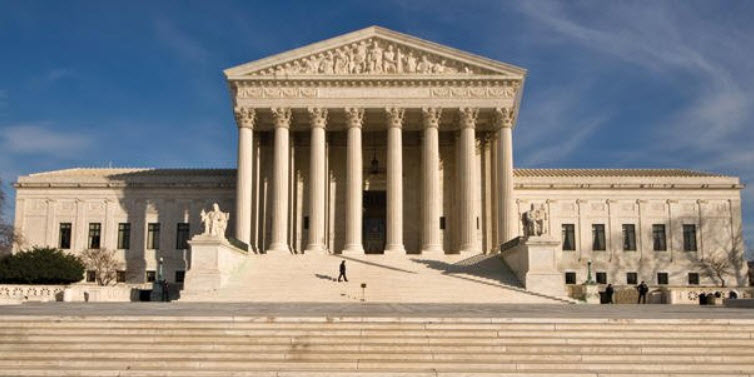Stop me if you’ve heard this one before: This spring, the U.S. Supreme Court handed down a highly anticipated decision in a case that could have implications on state sales tax rules and enforcement in the coming years.
Although that description fits the Supreme Court’s historic South Dakota v. Wayfair ruling last year, I’m actually referring to the court’s May 13 ruling of the Franchise Tax Board of California v. Hyatt appeal. Although this case was not centered on sales tax issues, it means that post-Wayfair sales tax rules changes are less likely to be challenged.

In its 2018 Wayfair decision, the court overturned Quill Corp. v. North Dakota, replacing that precedent’s condition that sellers must have a physical presence (or nexus) in a state before being required to collect sales tax with an economic nexus requirement more relevant for interstate e-commerce transactions. In this year’s Franchise Tax Board of California ruling (a 5-4 decision), the justices also overturned court precedent, Nevada vs. Hall, that generally served as a check on states’ taxing authority. While the Wayfair decision has far greater tax implications, the Franchise Tax Board of California decision’s repercussions are also noteworthy.
The Hyatt ruling is highly significant in application to various areas of the law, including civil procedure, the sovereign immunity of states, comity and reciprocity. It is also highly relevant to state sales taxes, especially in a post-Wayfair environment where states are still fine-tuning their regulations to reap the benefits. The Hyatt ruling provides both benefits and impairments to the states. On one hand, the ruling will make it easier to shield state businesses from out- of -state tax lawsuits. On the other hand, the ruling may make it very difficult for states to safeguard their own companies from the compulsory legal responsibility of collecting sales taxes in the other states where they are also doing business.
The Hyatt ruling also bolsters the advantages that South Dakota v. Wayfair provided to large companies that already had mature sales tax collection and remittance processes and supporting technology in place. Writing in Law360, University of Richmond School of Law Tax Professor Hayes Holderness notes, “Together, Wayfair and Hyatt mean that remote vendors are subject to new tax collection obligations and have to go to the imposing state to challenge misapplications of those obligations.” Cases like Hyatt are rare, so I don't mean to oversell it, but that result could be fairly burdensome for smaller taxpayers.
Consequently, the Hyatt ruling will have serious repercussions upon the nonresident remote sellers, as it permits states to enact more effective and wider tax regulations that apply specifically to nonresidents, without the risk of potential challenges in other sister states’ courts. This would make it more applicable to inbound foreign remote seller companies doing business in the U.S., thus, it could become problematic for non-U.S. remote sellers and vendors. Nevertheless, even with a tax judgment in hand, states will find it difficult to collect from foreign- remote sellers, if they do not already have assets, a permanent establishment (P.E.) or some type of physical presence within the U.S. More so now, as states or taxpayers can no longer bring legal claims in other states' courts, but taxpayers should beware, as states still must observe Full-Faith and Credit and give judicial enforcement effect to the judgments of other state courts.


